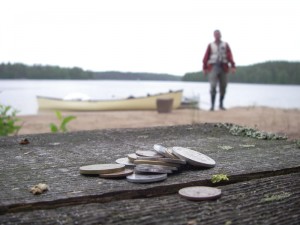What You Need to Know About Estate Tax
Posted on: May 11th, 2010 by Amy Bolger People often mistakenly associate the word “estate” with an abundance of wealth or a large home when, in reality, it is relevant to everyone. An estate is everything a person owns when he or she dies, including home and personal property, all investments, whether they be accounts (of all varieties), retirement plans, real estate, or businesses. Most of us have not necessarily been paying much attention to estate tax in recent years because it wasn’t effecting our financial plan. But as of January 1, 2011, the Federal estate tax is scheduled to rise from the ashes. Only $1 million will be exempt with the rest being taxed at 55% (sometimes 60%). With that in mind, we need to start going over the ins-and-outs of estate tax again.
People often mistakenly associate the word “estate” with an abundance of wealth or a large home when, in reality, it is relevant to everyone. An estate is everything a person owns when he or she dies, including home and personal property, all investments, whether they be accounts (of all varieties), retirement plans, real estate, or businesses. Most of us have not necessarily been paying much attention to estate tax in recent years because it wasn’t effecting our financial plan. But as of January 1, 2011, the Federal estate tax is scheduled to rise from the ashes. Only $1 million will be exempt with the rest being taxed at 55% (sometimes 60%). With that in mind, we need to start going over the ins-and-outs of estate tax again.
First, assets inherited or received as gifts from a spouse are not taxed; its called the “unlimited marital deduction.” It doesn’t avoid estate tax, it postpones it. Anything that remains when the second spouse dies would be taxable as part of their estate. This just leaves the remaining spouse more to live on while he or she is alive.
One big mistake people make is buying a life insurance policy and naming themselves as the owner. When they do that, the proceeds become part of their estate, only adding to the amount that they are leaving behind. If that total is more than the exemption amount and they left it to someone other than their spouse or charity, it becomes subject to estate tax.
Charitable gifts you make during your life can be much more tax-efficient than gifts through your estate plan. One advantage is that you can take an income tax deduction for the year in which the gift was made. Another benefit is that the donation reduces your net worth and leaves less that could be subject to estate tax. In contrast, if you make a gift in your will, it reduces your taxable estate, but there is no income tax write-off.
Most methods of saving estate taxes require you to totally give up ownership and control over assets, whether you are giving them to people directly or putting them in a trust. If this is the route that you choose to take, make sure you are leaving yourself enough, and to be on the safe side, you should assume you will live to an advanced age.
The biggest mistake people make is failing to make an estate plan. No one is immortal and its a realization we must all come to. You can’t just assume that your loved ones will know what you want done with your estate. And you are also leaving a bigger burden on them if you fail to plan for the pitfalls of the estate tax. We all want what is best for our loved ones, so take the time to plan so that you can care for them when you are no longer here as well.

